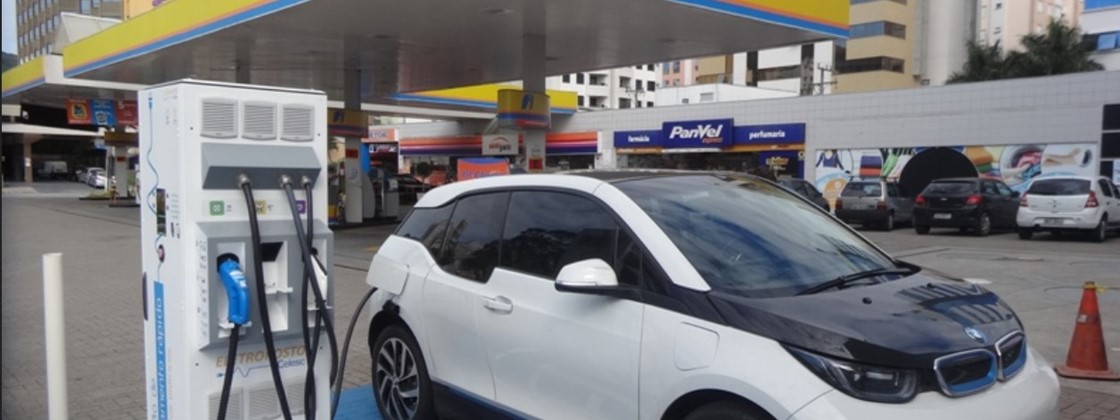RIO DE JANEIRO, BRAZIL – Brazilian drivers have been recently faced with a “Sophie’s choice”. Those who refuel with alcohol and gasoline realize that the reality of production and tax collection on fuels are turning the prices increasingly impractical. And those seeking an electric car are faced with high vehicle purchase prices.

In this scenario, what can Brazil do to expedite the migration to electric cars? After all, although 2020 was the best sales year since official records began to be taken in 2012 by the Brazilian Electric Vehicle Association (ABVE), the electric fleet represents only 1% of the total vehicle market in the country.
First of all, a national policy to encourage electric models is critical, following the example of states such as Paraná, which have already exempted electric car owners from the annual Motor Vehicles Tax (IPVA). To this end, the Federal Chamber of Deputies has been debating Bill 3174/20 since October, which foresees tax cuts, changes in the federal government’s fleet, and the creation of priority credit lines for the production of electric vehicles in Brazil.
According to the bill, electric vehicles will be totally exempt from the Tax on Industrialized Products (IPI). Hybrid models (with electric and conventional propulsion) will have a 50% tax cut.
Moving forward on this important tax front, it is necessary to unite the associations and entities that represent both the electric and the renewable energy fleets.
In addition to ABVE, we have witnessed a growing role of the Brazilian Association of Distributed Generation (ABGD), which since 2015 has been working for the inclusion of different sectors of society in distributed generation, incorporating the concepts of sustainability, financial return, legal certainty, energy efficiency, and predictability of expenses, related to energy generation and consumption.
In 2020, we also witnessed the foundation of the Brazilian Association of Waste and Sanitation Energy (ABERS), which includes companies and individuals interested in contributing to solving the serious ecological problem that combustion engines represent while converting the problem into revenue, in a sustainable way, by generating energy and other byproducts.
Advantages and electrification
The economic and sustainable advantage of electric cars compared to conventional ones is undeniable. If coupled with solar energy generation distribution, or even with electric vehicle recharging stations using this technology, savings are even higher. It all depends on a gradual cultural change, particularly when users realize that electric cars require significantly less maintenance, engine, parts, and servicing costs.
In addition, companies in the United States have been increasing the adaptation of electric motors to traditional vehicles, with a technology that does not demand large investments and can be implemented in Brazil.
The electrification of used cars can add value to classic models and extend their useful life, from the Beetle to the Tucson.
In November, Renault announced that it will convert its car plant in Flins, France, into a recycling and research center with the goal of achieving a negative CO2 balance by 2030. The plant is currently manufacturing the Renault Zoe electric car, a model that will remain on the production line until 2024, when the plant conversion will be fully completed. Moreover, in 2020 the Renault Group launched Elexent, a new company to enable all fleet infrastructure projects for rechargeable electric and hybrid vehicles.
Electric car sales grew in Brazil
The growth in sales of electric cars in 2020 confirmed the trend that the electrified market is evolving in the opposite direction of the automotive sector as a whole in Brazil. According to the National Federation of Automotive Vehicle Dealers (FENABRAVE), total car and light commercial vehicle registrations dropped by 26.6% in 2020 compared to 2019 (1,950,889 against 2,658,692).
Once again, electrified cars proved their potential, in sharp contrast to the evolution of the entire market.
“In these covid-19 times, Brazilian consumers have made a clear bet on non-polluting and sustainable vehicles. They chose to protect their health and the health of society. But it is clear that we are still a long way from an expressive share of the total market. Therefore, we must insist on measures to promote electric mobility,” says Adalberto Maluf, ABVE’s president.
ABVE also advocates programs for the installation of electric vehicle recharging stations on the roads (one of its priorities for 2021) and incentives for the electrification of government fleets and of car-sharing service providers. Today, Brazil has around 350 recharging points on highways and public places, such as shopping malls and gas stations, according to the Tupinambá Energia app, a startup focused on infrastructure for electrified vehicles.
In November, the association also prepared the ABVE Charter for Electromobility, which proposes a set of measures to support sustainable transport in cities.
ABVE’s president reflected on the future that Brazil desires for its mobility and sustainability.
“The closing of the Ford plants shed light on the future of the automotive sector and subsidy policies, an increasingly important reflection to be made given the changes in the automotive and energy sectors worldwide. It is well known that our tax system is complex and that often ‘subsidies’ are measures to mitigate the distortions of an inefficient system. In Brazil, we still encourage outdated technologies, based on fossil fuels and low-tech vehicles. But is it worth it?”
Source: Tecmundo

